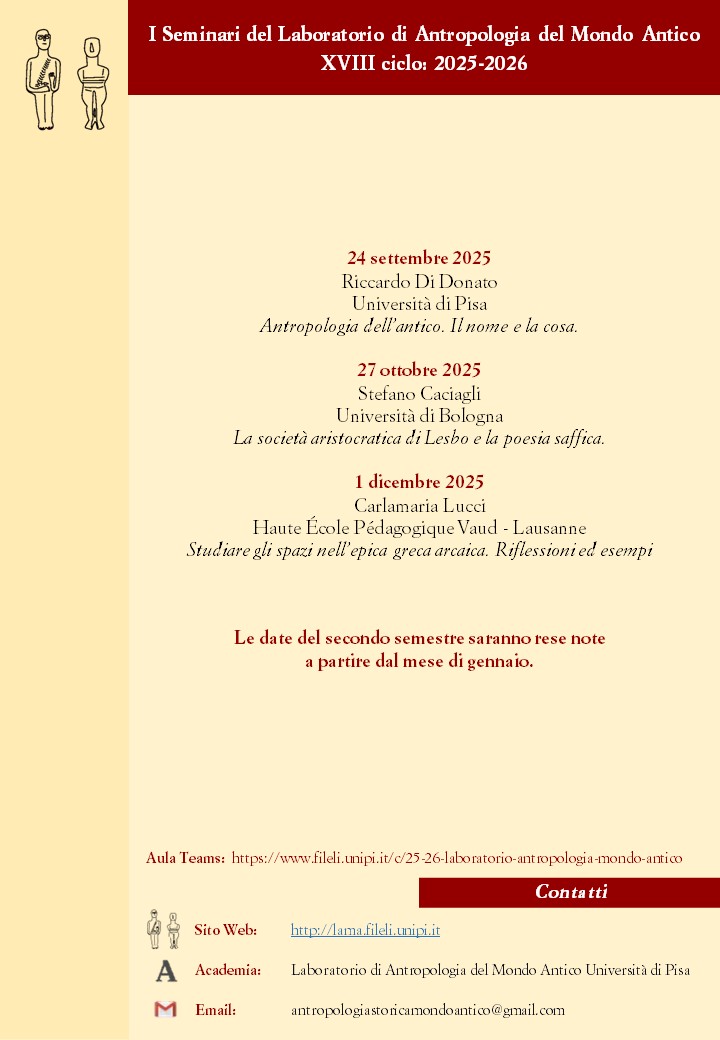CfP: Musical Instruments as Votive Gifts in the Ancient Greek World.
ANNUAL MEETING
OF THE ARCHAEOLOGICAL INSTITUTE OF AMERICA
AND THE SOCIETY FOR CLASSICAL STUDIES
Boston, Massachusetts, January 4-7, 2018
Call for Papers for Colloquium on Archaeomusicology:
Musical Instruments as Votive Gifts in the Ancient Greek World
The practice of dedicating musical instruments to the gods in the ancient Greek world – along with figurines of instruments, sound tools, and texts of song – is well attested by a variety of sources, including a number of epigrams in the Greek Anthology, temple-accounts, and the discovery of the instruments themselves during excavations, which often bear votive inscriptions.
A single instrument or a single sound tool can’t tell us much unless we view it against a broad social and archaeological context. Each instrument is not an isolated unit, but a component of musical performance in cult considered as an offering to the divinity within the framework of the ritual ceremony. Worshippers or musicians tried to give a more lasting effect to the musical performance by dedicating instruments in honour of a god or a goddess.
There are many different motives and often more than one explanation for the dedication of musical instruments to the gods. Some questions that papers for this colloquium could address are: do instruments as votive gifts from the sacred contexts in the ancient Greek world reveal anything about a transition or the end of a career, often because of age? Could the dedication of instruments found in the shrines point to anything about ritual performance? How can the discovery of dedicated instruments enrich our understanding of visual images of ritual? Could the instruments from sacred contexts provide evidence for a successful participation in a contest, a prayer for preservation and protection or a prayer for health, tranquillity, and success? Could the instruments also function as a thanksgiving offering for deliverance from disease, peril or for a fulfilled vow, or an everlasting memorial of the worshipper’s piety and in some cases, a means of self-glorification?
These topics will be addressed through contributions by scholars working in various fields: archaeology, history of religion, musicology, anthropology, and art history.
To be considered for the colloquium, please send a 200-300 word abstract to Angela Bellia (angela.bellia@unibo.it) and Sheramy Bundrick (bundrick@usfsp.edu) by Tuesday 28 February.
If you have questions about whether an idea would fit with the theme, please feel free to contact them. In accordance with AIA regulations, all abstracts for papers will be read anonymously by two referees.

